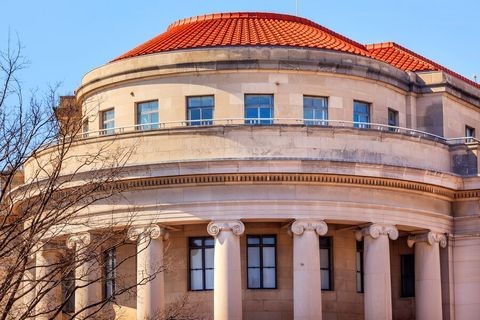United Kingdom Supreme Court Holds That a Challenge to Enforcement of an International Arbitration Award May Not be Conditional upon Provision of Security on the Award
Client Alert | 4 min read | 03.07.17
In IPCO (Nigeria) Limited v Nigerian National Petroleum Corporation [2017] UKSC 16, a unanimous bench of five members of the Supreme Court held that the English courts may not condition a New York Convention award debtor’s challenge to award enforcement under the Convention and Arbitration Act 1996 upon payment of security on the award’s value, except in cases of adjournment pending resolution of a challenge in the courts of the seat of arbitration. The judgment, dated 1 March 2017, is available here.
Keen followers of English enforcement proceedings of international arbitration awards will be aware that the present award has seen one of the longest enforcement procedures in the courts of this jurisdiction. IPCO has been seeking enforcement of the award, of over US $150 million and interest, against NNPC in England since November 2004.
In this latest chapter of the saga, the Supreme Court has made its first intervention in the case. NNPC had previously been ordered to pay award security of US $80 million while enforcement in England was adjourned in favour of a challenge to the award brought by NNPC at the seat of arbitration in Nigeria. Thereafter, in March 2009 NNPC changed tack from its adjournment strategy and argued that IPCO had procured the original award by fraud such that it should not be enforced in England in any event as a matter of public policy. The Court of Appeal remitted the case to the Commercial Court below to hear the challenge on the condition of a further payment by NNPC of US$ 100 million in security. NNPC challenged that condition.
The New York Convention’s Articles V and VI express the reasons and terms under which awards may be challenged. At Article VI, the Convention specifically contemplates that a court being asked to enforce an award may pause its proceedings while a challenge is resolved at the home jurisdiction of the award, and “may also, on the application of the party claiming enforcement of the award, order the other party to give suitable security.” By contrast, Article V, which includes various other grounds upon which a court may refuse enforcement, contains no such grant. The Arbitration Act provides a domestic legal basis for Articles V and VI at section 103. Particularly, section 103(5) reflects the Article VI grant of authority regarding award security.
In overturning the Court of Appeal’s condition of security for the fraud challenge to be heard, Lord Mance’s judgment for the Court gave the opinion that Articles V and VI provide a “code”1 for the enforcement of awards, intended to set a common international approach to award enforcement. Nothing in the implementing language of section 103 of the Arbitration Act changed that position: “[s]ecurity [under section 103(5)] pending the outcome of foreign proceedings is, in effect, the price of an adjournment which an award debtor is seeking [and is] not to be imposed on an award debtor who is resisting enforcement on properly arguable grounds.”2
IPCO had also argued that the Court of Appeal’s decision to order security could be justified given the court’s general power under the Civil Procedure Rules at Rule 3.1(3)(a) to make orders “subject to conditions, including a condition to pay a sum of money into court.”
Lord Mance declared that CPR 3.1(3)(a) had “no relevance on this appeal.”3 The court’s power under that rule is exercisable as a matter of case management in order to establish a quid pro quo in appropriate cases when granting a party relief. It is not “the imposition of a fetter on a person exercising an entirely properly arguable right”4 – in this case, to have NNPC’s fraud challenge heard at all. Of course, CPR 3.1(3)(a) may become relevant in enforcement actions depending upon the award debtor’s conduct before the court and in the context of ancillary applications, such as freezing orders.
In a positive note for expectant award creditors, the Supreme Court did declare that where security had already been ordered in the case of prior adjournment, if the English court decides to take up a matter itself within enforcement proceedings – as in the present case – the previously ordered security may remain intact while the court examines that issue.5 Accordingly, NNPC’s previous security of US $80 million was not released.
This clarification of the scope of the court’s power to grant award security may militate in favour of multi-jurisdictional enforcement strategies including the seat of arbitration, so that award creditors can take advantage of local adjournments to invoke the Article VI power to order security in other courts even if those courts later decide to pursue decisions on other aspects of enforcement. Meanwhile, award debtors may wish to avoid adjournment in England and instead only challenge awards under the Article V grounds. Parties and practitioners should also be on the alert for any conflict with this interpretation of Articles V and VI appearing in other jurisdictions.
1 IPCO (Nigeria) Limited v Nigerian National Petroleum Corporation [2017] UKSC 16, para. 41.
2 Id., para. 28.
3 Id., para. 44.
4 Id.
5 Id., para. 46.
Insights
Client Alert | 11 min read | 05.17.24
FTC Finalizes Modifications to Broaden the Applicability of the Health Breach Notification Rule
On April 26, 2024, the Federal Trade Commission (“FTC”) announced a final rule (“Final Rule”) modifying the Health Breach Notification Rule (“HBNR”). The Final Rule, which largely finalizes changes proposed in a Notice of Proposed Rulemaking published last year (“2023 NPRM”), broadens the scope of entities subject to the HBNR, including many mobile health applications (“apps”) and similar technologies, and clarifies that breaches subject to the HBNR include not only cybersecurity intrusions but also unauthorized disclosures, even those that are voluntary. The Final Rule will take effect 60 days after its publication in the Federal Register.
Client Alert | 5 min read | 05.16.24
CMS Finalizes Contested Rule on Nursing Home Staffing and Facility Assessments
Client Alert | 3 min read | 05.15.24
Client Alert | 3 min read | 05.14.24





